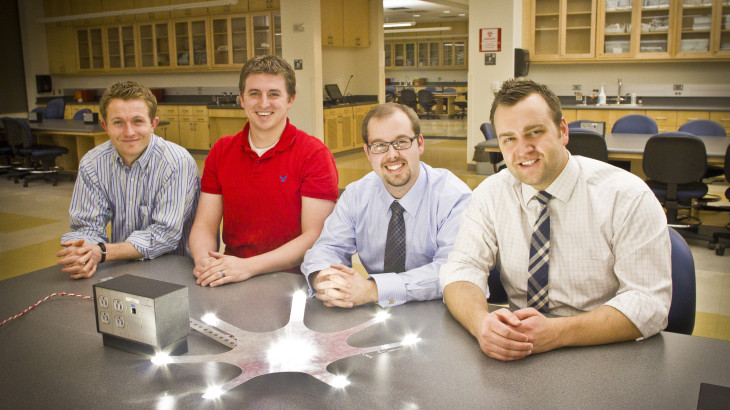A team of University of Utah students is literally shining a light on growing disparities in health care across the globe. They have formed a company called IlluMed Global, and they are creating a low-cost surgical light that provides similar power to those found in the U.S. at a fraction of the cost.
“We want a product that is appealing to physicians and will perform the way they want it to,” says Tab Robbins, a graduate student in bioengineering. “We are trying to close the gap between what is available in the western world and what is needed in the developing world.”
Other students on the project include: medical students Bob Chestnut, Joseph Strunk, Aabid Farukhi and Elisabeth Leeflang; Timothy Hunzeker, a bioengineering graduate; Kyler McCarty, a graduate in philosophy and communications who is now an MBA and law student at Brigham Young University; and Christopher Pagels, a bioengineering undergrad.
The team first came together for the inaugural Bench to Bedside competition during the 2010-2011 school year. Students in that competition invent a medical device, create a prototype and compete for thousands of dollars in prize money. IlluMed was one of the top teams when it competed, earning $10,000 for product development.
“The U is definitely a hotspot for innovation, and we have received very good support,” Chestnut says.
Their device uses powerful and dependable LED lights, a simple metal frame and a battery backup, which is important because power can be inconsistent in some countries. Currently, their device can produce 70 percent of the light recommended by international standards, and they hope to boost that to 100 percent, Robbins says.
Since the Bench to Bedside competition, the IlluMed team has continued developing their product. They have also taken every opportunity to turn their project into a learning opportunity — for them and others at the U. While they have learned about entrepreneurship and product development, they also partnered with the U’s bioWorld program to send students to Mongolia to do field research. The result is a win for all those who have touched this project.
“The experience has furthered my career,” Robbins says. “I’m in medical device innovation, and I feel I have the job I do because of this project.”



